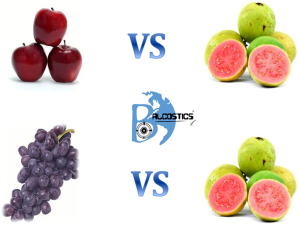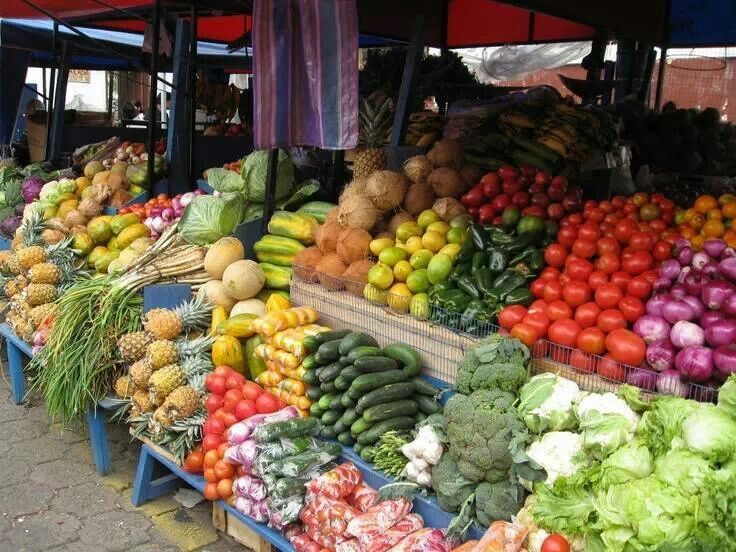We are often encouraged to eat foods with less fat and sodium, more fiber, more complex carbohydrates and lower in calories. [You can watch the animated video if you don’t want to read]
The foods that are most promoted are usually the imported ones since more is known about them than about our local foods. We may therefore seek out whole grain cereals and breads, fruits such as the American apple, plum and grapes and vegetables such as broccoli and cauliflower. How do our local foods compare?

Who has not heard the adage, ‘an apple a day keeps the doctor away’? This is probably because the American apple has fiber to facilitate gut health and rid the body of waste. But do you know that one guava fruit has four (4) times the amount of fiber, slightly more potassium and nineteen (19) times the amount of vitamin C as an American apple? In comparison to a whole bunch of grapes, one (1) guava has twenty five (25) times more vitamin C, four (4) times more fiber and about the same potassium.Likewise, it would take fifteen (15) American apples to supply the vitamin C content of only one (1) West Indian cherry.

Cranberry juice has become very popular because of its benefits to bladder health. But have you thought that similar benefits could be had from coconut water at less than half the calories and with appreciably more potassium? A glass of cranberry juice will provide about 150 – 200 calories while the same glass of coconut water contains only 50 calories while giving 400mg potassium compared to the 60mg for cranberry juice.
For those concerned about the sodium content of coconut water, be assured that a single glass will provide only 60mg sodium compared to the 700 mg in V8 canned vegetable juice. Also, be assured that the coconut water has no fat.
The fat of the coconut resides in the jelly and will thus be found in coconut milk, but there is no cholesterol since the coconut is of plant origin and cholesterol is found only in foods of animal origin. This means that butter will have cholesterol but coconut milk, like the vegetable margarines is free of cholesterol. Moreover, the traditional way of cooking with coconut milk for flavor is better that using margarine which is often substituted in porridge, rice and peas and soups. A tablespoon of coconut milk has only 38 calories and 4g fat compared to 111 calories in the same amount of margarine and 11.5 g fat.
Also, the fat in coconut is healthier for the body than margarine fats. Two other sources of fat that are often mislabeled are the Jamaican ackee and the Avocado pear. Neither has any cholesterol and the fat is monounsaturated – the same type of fat that we pay so much for in the olive oil.

The Irish potato, brown rice and whole kernel corn provide the least fiber per serving. Those of better value are whole wheat bread, green banana and sweet potato providing 1.5 g per serving of about 70 calories. Richer still is rolled oats at 1.96g but topping the list, you guessed it, our local breadfruit at 2.45 for a serving of two(2) slices.
So next time you reach for the foreign goods on the shelf, don’t forget our local products are the best.
Author: Mrs. Patricia Thompson
Consultant Nutritionist
At Balcostics our mission is to empower leaders with the required data and information to make better decisions. Learn more about our full list of research outsourcing services for individuals and companies: Click here



Wonderful! Living in the USA and have just begun to spread the news about our “Jamaican Good Food”. I would like to obtain any additional sources of reference to spread the word.
LikeLike
Excellent article! Why am I JUST NOW seeing this? I’ve saved it for future reference… This is valuable information for those of us who love to eat our Jamaican produce but don’t know the nutritional info.
LikeLike
Great info has just recently start eating healthy and its paying off
LikeLiked by 1 person
I agree with thus full stop!! Good work
LikeLiked by 1 person